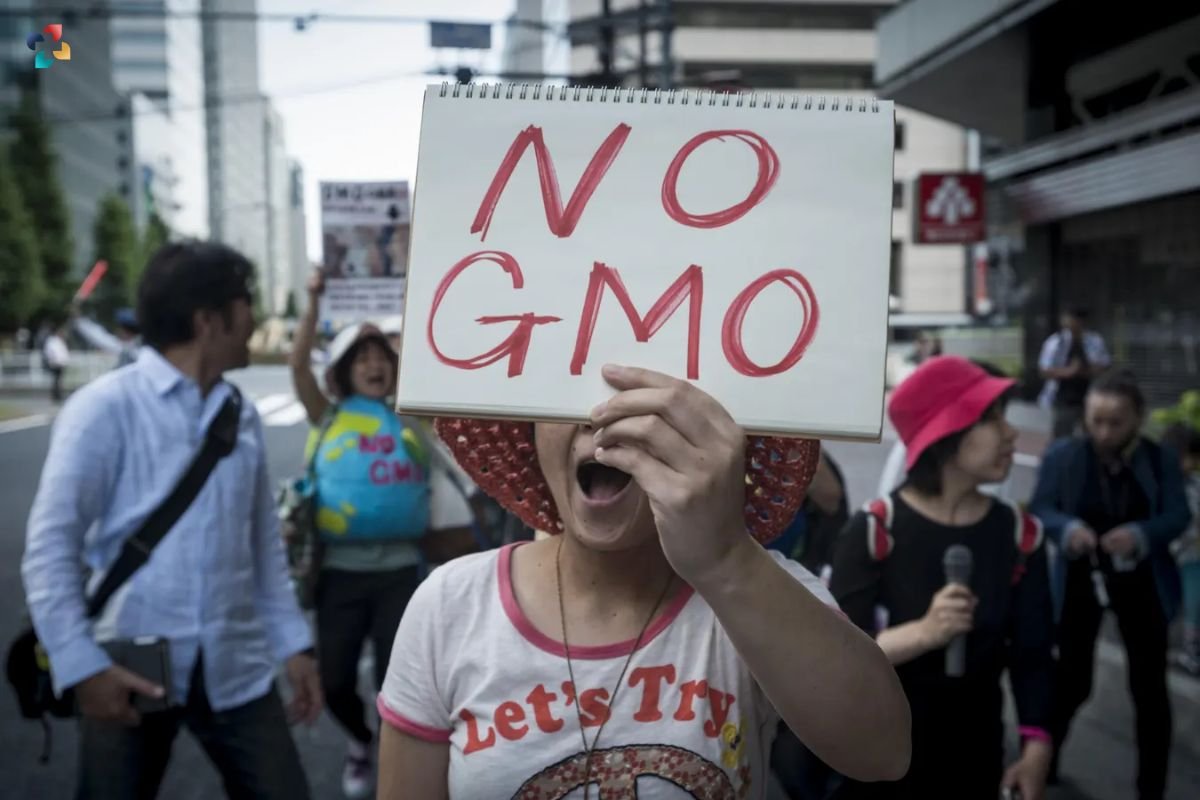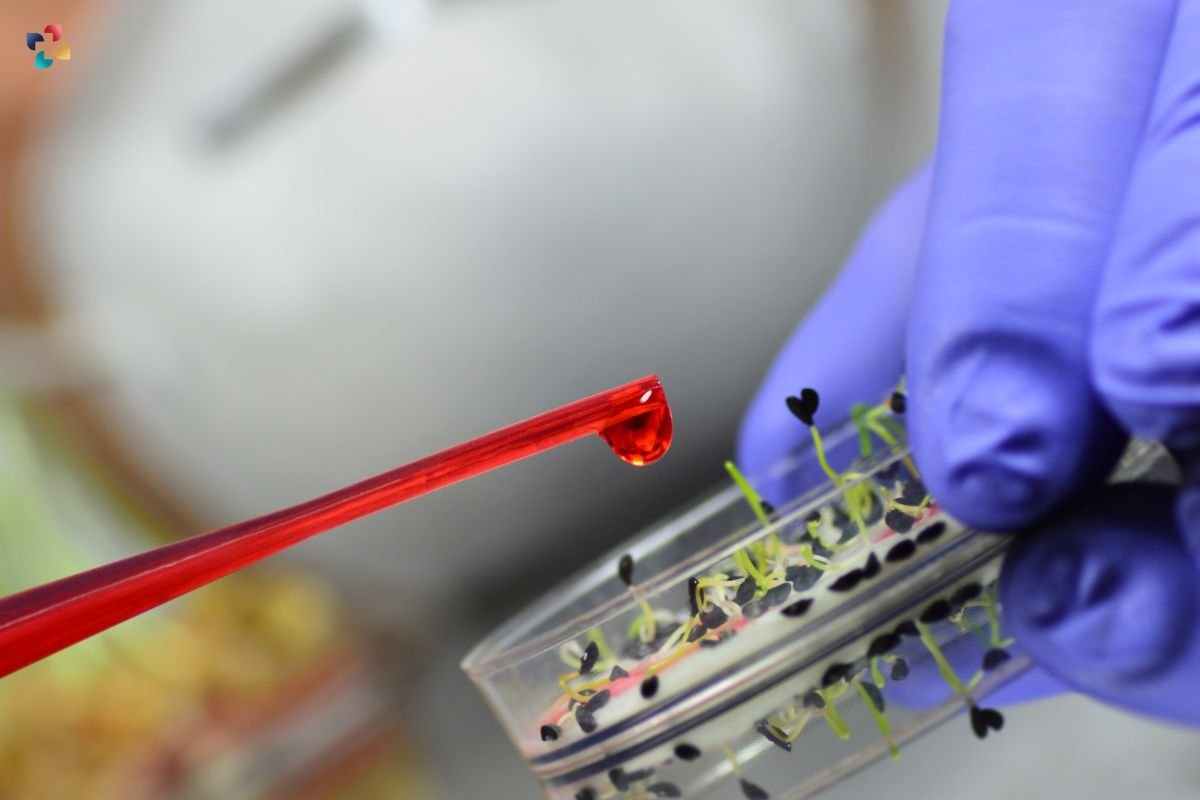Since scientists may now alter a crop’s genetic composition for a variety of purposes thanks to developments in biotechnology, genetically modified food, or GMF, has become a hot topic of discussion and debate. This essay seeks to examine the complications surrounding genetically modified food, delving into the debates around this cutting-edge technology as well as any possible advantages.
What is Genetically Modified Food?
Genetically modified food refers to crops whose genetic material has been altered in a way that does not occur naturally through mating or natural recombination. This alteration is typically achieved through the insertion or deletion of specific genes, allowing scientists to enhance desired traits such as resistance to pests, tolerance to harsh environmental conditions, or improved nutritional content.
Genetically modified food, often abbreviated as GMF, represents a revolutionary stride in agriculture, where the genetic makeup of crops is intentionally modified through advanced biotechnological processes. This alteration is meticulously executed by inserting or deleting specific genes, a practice not found in nature through traditional mating or recombination.
The primary objective of genetically modifying crops is to imbue them with enhanced traits, ranging from heightened resistance to pests and adaptability to challenging environmental conditions to elevating their nutritional profiles. This sophisticated approach to agricultural biotechnology has spurred both excitement and debate, positioning GMF at the forefront of discussions on food security, innovation, and ethical considerations.
The Controversies Surrounding Genetically Modified Food:

Despite the potential benefits, genetically modified food has ignited fervent controversies, raising concerns about its safety, environmental impact, and ethical implications.
1. Safety Concerns
One of the primary concerns revolves around the safety of genetically modified food for human consumption. Critics argue that insufficient research has been conducted to fully understand the long-term effects on human health, leading to skepticism among consumers.
2. Environmental Impact
The environmental impact of genetically modified crops is another contentious issue. While proponents argue that GMF can reduce the need for chemical pesticides and contribute to more sustainable agriculture, opponents raise concerns about unintended ecological consequences, such as the development of superweeds and harm to non-target organisms.
3. Ethical Considerations
The ethical considerations surrounding genetically modified food often center on issues of corporate control over agriculture, potential monopolies on seeds, and the socio-economic impacts on farmers, particularly in developing countries.
Potential Benefits of Genetically Modified Food:
Amidst the controversies, genetically modified food holds promise for addressing pressing challenges in agriculture and food security.
1. Increased Crop Yield
One of the key advantages of GMF is its potential to increase crop yields. By introducing genes that enhance resistance to pests and diseases or improve tolerance to environmental stressors, farmers can cultivate more resilient and productive crops.
2. Enhanced Nutritional Content
Genetic modification offers the possibility of enhancing the nutritional content of crops. For instance, scientists have developed genetically modified rice, known as Golden Rice, enriched with beta-carotene to address vitamin A deficiency in populations relying heavily on rice as a staple food.
3. Pest and Disease Resistance

By incorporating genes that confer resistance to pests and diseases, genetically modified crops can reduce the reliance on chemical pesticides, promoting more sustainable and environmentally friendly agricultural practices.
Global Adoption and Regulation of Genetically Modified Food:
The global adoption of genetically modified food varies significantly, with some countries embracing this technology while others impose strict regulations or outright bans. The regulatory landscape is shaped by a combination of scientific considerations, public opinion, and socio-economic factors.
1. Global Adoption
Countries such as the United States, Brazil, Argentina, and Canada have embraced genetically modified crops on a large scale, cultivating varieties of GM soybeans, corn, and cotton. In contrast, many European countries have implemented stringent regulations and bans on GMF.
2. Regulatory Framework
The regulatory framework for genetically modified food varies widely across jurisdictions. Some countries, like the United States, follow a science-based approach, assessing the safety of GMF through rigorous scientific evaluation. Others, like those in the European Union, emphasize the precautionary principle, requiring a more thorough examination of potential risks before approving GMF.
Future Directions and Emerging Technologies:
As technology continues to advance, new developments in genetic modification and related fields are shaping the future of agriculture.
1. CRISPR Technology
The emergence of CRISPR-Cas9 technology has revolutionized genetic modification, offering precise and targeted gene editing capabilities. This technology allows scientists to make specific changes to an organism’s DNA, opening new possibilities for crop improvement with greater precision and efficiency.
2. Gene Editing for Sustainability
Researchers are exploring gene editing techniques to enhance crop sustainability, such as developing varieties with improved nitrogen use efficiency, reduced water requirements, and resilience to climate change.
Consumer Awareness and Education:

Addressing the controversies surrounding genetically modified food requires a concerted effort to enhance consumer awareness and education.
1. Transparent Labeling
Transparent labeling of genetically modified food products is essential for providing consumers with the information they need to make informed choices. Clear and accurate labels contribute to building trust and empowering consumers to make decisions aligned with their preferences.
2. Public Engagement and Dialogue
Engaging the public in discussions about genetically modified food is crucial for fostering understanding and addressing concerns. Inclusive dialogues involving scientists, policymakers, farmers, and consumers can contribute to informed decision-making and the development of responsible regulatory frameworks.
Conclusion
Genetically modified food continues to sit at the nexus of ethical concerns, agricultural sustainability, and scientific advancement. The advantages and disadvantages of GMF draw attention to the necessity of a well-rounded strategy that takes into account both possible risks and benefits. Genetically modified food and its place in global food security will be greatly influenced by continued research, open communication, and responsible governance as technology develops.
In summary, negotiating the intricacies of genetically modified food necessitates a sophisticated comprehension of the relevant socioeconomic, ethical, and scientific considerations. The continuous discourse and technological developments offer prospects to leverage the possible advantages of GMF while tackling apprehensions and guaranteeing a robust and sustainable future for worldwide agriculture.









